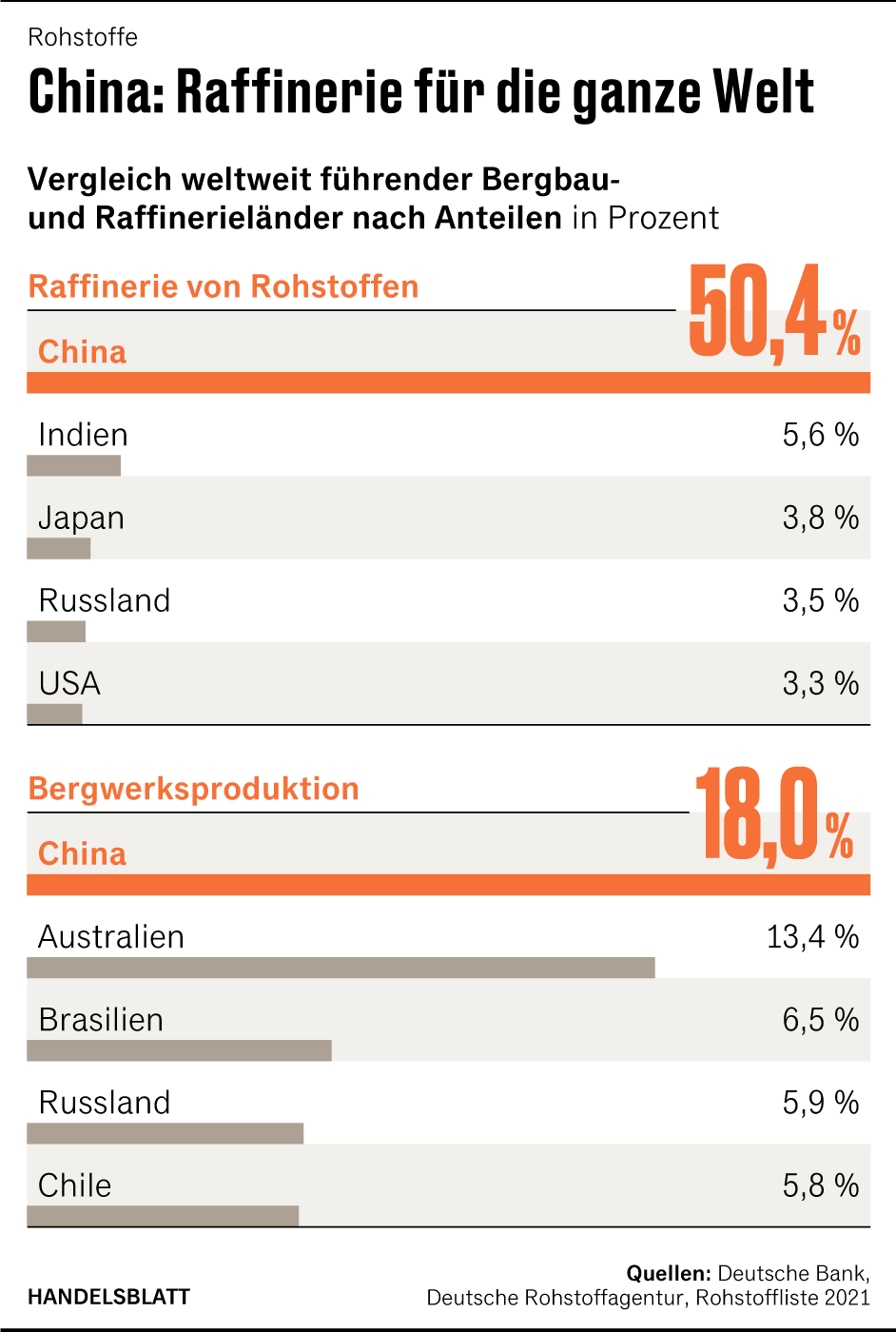The head of Deutsche Bank said at the Handelsblatt banking summit that the German economy has enough resilience to overcome the recession.
(Photo: Marc-Steffen Unger for Handelsblatt)
Frankfurt From the point of view of Deutsche Bank boss Christian Sewing, Europe should not only become less dependent on raw material and energy imports from Russia. “When it comes to dependencies, we also have to ask ourselves the uncomfortable question of how we deal with China,” said the institute’s CEO at the Handelsblatt banking summit in Frankfurt.
“The increasing isolation of the country and the growing tensions, especially with the USA, pose a considerable risk for Germany,” said Sewing. Europe has experienced how dangerous it is “if we make ourselves too dependent on individual countries or regions,” the manager explained.
At the moment, the focus is “quite rightly” on energy and raw material imports from Russia. “We must do everything to ensure that our cars, heating systems and factories do not only run when an autocrat in the Kremlin favors us,” Sewing said. But that alone is not enough.
However, Sewing also acknowledged that becoming more independent from China is much more complicated. “China is a cornerstone of our economy,” Sewing said. The country buys eight percent of German exports and accounts for twelve percent of German imports.
Top jobs of the day
Find the best jobs now and
be notified by email.
More than a tenth of the sales of all Dax companies come from China. “Reducing this dependency will require at least as fundamental a change as decoupling from Russian energy,” said the Deutsche Bank boss.
In May, Deutsche Bank published a study in which it referred to Germany’s and other European economies’ dependence on commodities. Against this background, she had called for new sources of supply, more recycling and strategic reserves for important raw materials.
In April, Sewing had already discussed dependence on China in a press conference of the Association of German Banks (BdB), of which he is currently president. At the time, he said German companies were taking a close look at their supply chains with a view to their dependence on China.
Sewing warns of recession
Sewing assessed the economic situation critically in view of the disruptions in the supply chains, the shortage of workers and the high energy prices. Because of these factors, inflation rates have skyrocketed. “As a result, a recession in Germany will no longer be averted,” he thinks.
The economy has enough resilience to weather this recession well. “But that means that the central banks must now act quickly and radically.” One day before an important interest rate meeting of the European Central Bank (ECB), the head of Deutsche Bank indirectly advocated a significant adjustment of the key interest rate by 0.75 percentage points.
Many people can still fall back on their savings to deal with higher prices and many companies are still sufficiently financed. “But the longer inflation stays high, the greater the pain and social explosives,” warned the Deutsche Bank boss.
More: Deutsche Bank advises strategic raw material reserves – not only for oil and gas

